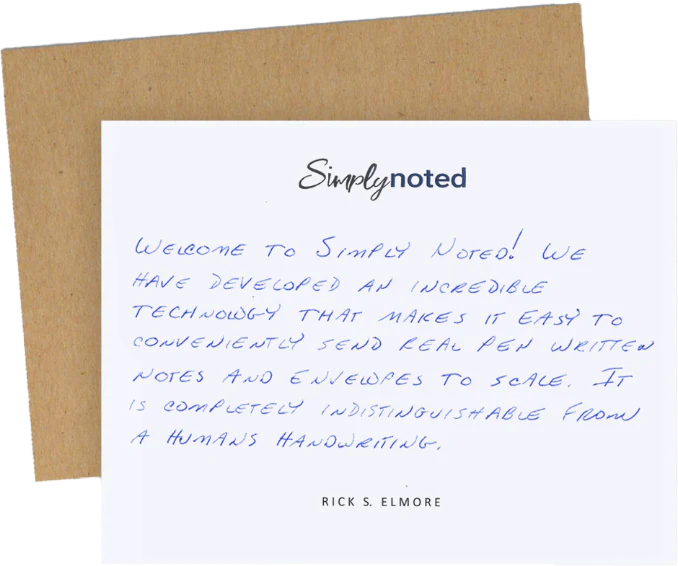How to Incorporate Empathy Into Sales

Think back to a time when you really connected with someone — when you had a genuine appreciation for how they felt and could see situations from their perspective instead of your own. That was an empathetic experience. You stepped outside of yourself and practiced assuming another person’s perspective. In that moment, you understood them more deeply than you had before.
What does that experience have to do with sales? Everything.
Effective salespeople learn as much as they can about their customers. They work to understand their industry, competitive advantages, processes, pain points, etc. The better a salesperson understands their prospects’ challenges, the better they can target their offerings and sales pitch.
Empathy is another way to understand your customer, but instead of business or organizational understanding, it involves individual emotional understanding, and it’s just as critical to your long-term success.
When you develop a deep understanding of how your prospects see the world and how they feel about the problems you’re trying to solve, your sales pitch will resonate on a deeper level. Simultaneously, you’ll be cultivating trust in a way that standard sales techniques can’t match. So how can you incorporate empathy into your sales processes?
What Exactly is Empathy?
Empathy is the process of putting yourself in someone else’s shoes. It’s different from sympathy, which is the process of recognizing someone’s challenges and feeling bad for them. Sympathy is easy. Empathy is harder.
When you’re empathetic, you not only recognize other people’s perspectives, but you work to understand why they see the world the way they do. It’s the difference between reading about a particular tourist destination and visiting it yourself. You’re not just sympathizing with the way someone experiences the world, you’re working to share their experience.
For some, empathy comes naturally. For many others, it takes effort and practice. But it’s a skill you can learn, and when applied to sales, it can make a marked difference.
SEE ALSO: How to Impact People With Handwritten Cards

PRACTICE ACTIVE LISTENING
The first step to adding empathy into your sales culture is to learn how to listen correctly. Salespeople are strategists, often thinking a few steps ahead while talking to prospects. The problem with this approach is that when you’re focused on what you’re going to say next or how you want to guide the conversation, you aren’t really listening to what your prospect is saying to you.
Active listening involves letting go of preconceived biases and assumptions, turning off the part of your mind that’s planning your conversation, and giving your undivided attention to the speaker. Instead of assuming you know what someone’s going to say next, you simply let them say it and then try to understand why. Don’t listen to find your advantage and don’t ignore things that don’t further your objectives. Simply listen.
SEE ALSO: How to be Great at Sales
Of course, your prospect can’t know whether they’re communicating effectively, so ask clarifying questions when you don’t understand something. Always try and drill a little deeper. Not only does this show that you’re interested in what your prospect has to say, it helps further your understanding of their situation.
One common objection to this approach holds that when you shut off your normal sales priorities and just listen you risk losing control of the conversation. But consider how often you worry about “losing control of the conversation” when speaking with close friends and family members. It’s probably not something you worry about because of the mutual trust and respect you’ve built up over time. This is the sort of relationship you want to build with prospects and customers. Guile, pretext, and manipulation won’t get you there. Listening to gain a true understanding of your prospects’ perspectives will.
SEE ALSO: How To Make Content Marketing More Personal

IF YOU WANT SOMEONE TO OPEN UP, DO IT YOURSELF FIRST
Active listening helps to build trust in a relationship because it makes it clear to your prospect that you truly care about their perspective. But just because you’re listening to them doesn’t mean that they’ll automatically open up to you. People often require a certain baseline of trust before they’ll let down their guard. You can help establish this by being vulnerable and opening up to them first.
Sharing your own reality accomplishes a few things. First, you create an opening for your prospect to be empathetic toward you, which increases feelings of trust and caring. This builds the relationship on their end and makes them more comfortable sharing in return. Second, it establishes reciprocity — when you ask your prospect to share they’ll be more willing to because you’ve already demonstrated your willingness to share in return.
Finally, when you share it becomes easier for them to share, creating a positive feedback loop that rapidly deepens your relatedness. And the more you can relate to your prospects, the more likely it is that they’ll consider your solutions to their problems.
SEE ALSO: Your Ultimate Guide to Relationship Marketing

Put Yourself in Your Prospect’s Shoes
You’ve made yourself vulnerable and opened up to your customers. Then you shut off your preconceptions and really listened to what they had to say. Now you need to take some time to consider what it is to be in their shoes. Don’t just consider their pain points. Try to understand why those pain points are so painful. Don’t just sympathize with their situation. Try to feel how they feel about it and understand what it means to them.
Imagine how their problems affect them and then consider how you might react if you were them. It can be helpful to consider a time when something similar happened to you. But be careful not to use your perspective exclusively. It’s not important how you see the world. In this case, it’s important how your prospect sees things.
Once you truly understand their perspective, you’re no longer selling to enrich yourself. You’re selling selflessly to help them. This is a subtle but powerful shift, and your prospects will pick up on it. They’ll appreciate that you’re honestly trying to provide solutions instead of just making a sale.
Your sales process becomes a conversation and a relationship instead of a series of tactics and strategies, and relationships are far more effective in the long run. People buy when they feel heard, appreciated, and cared for. So practice empathy and watch your sales numbers soar!























